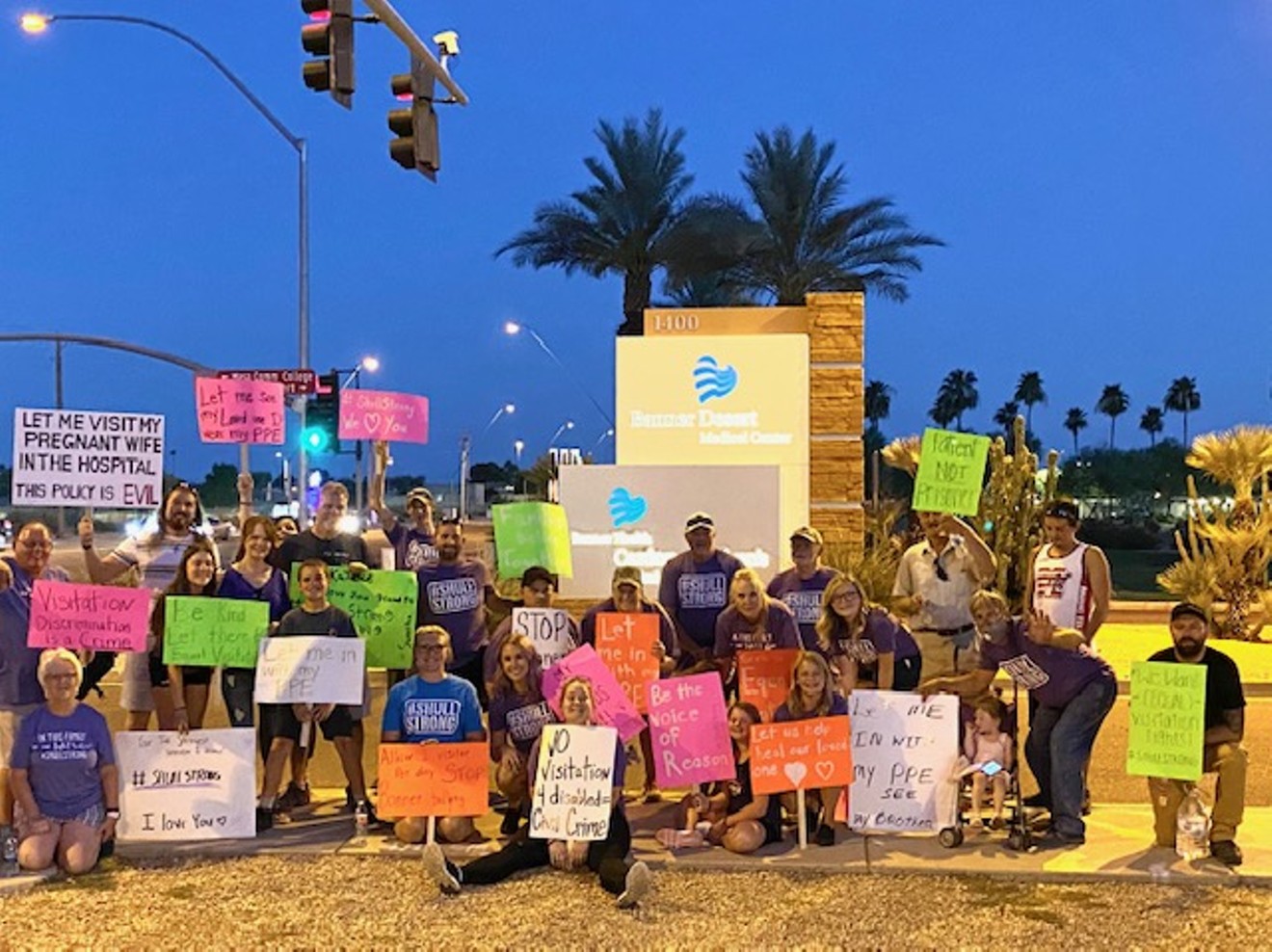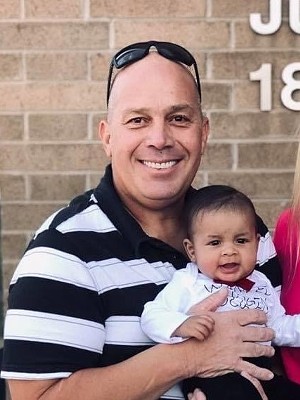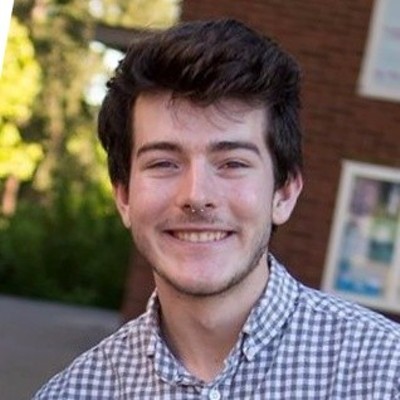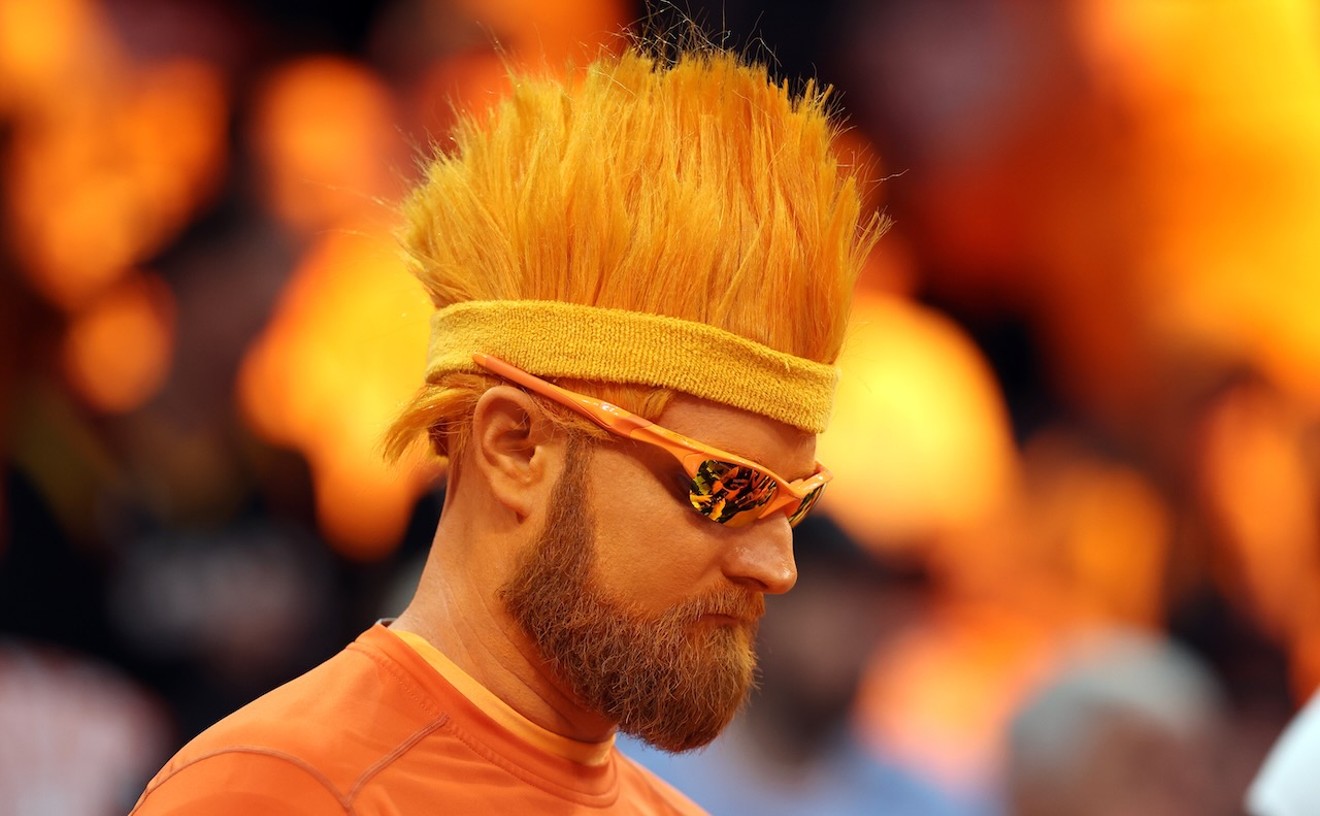After Lloyd Shull's stroke, one of his daughters found him collapsed on a tile floor, struggling to form words. His wife performed chest compressions, and he was rushed to Banner Desert Medical Center, where he was hooked up to machines to feed him oxygen and nutrients.
That was almost three weeks ago. COVID-19 visitation restrictions at the hospital have since prevented the family from seeing him. While they understand the reasons for the restrictions, they say Shull's wife of 29 years needs to be with him. Not for a visit, but to help provide the care he needs.
"If my dad was in there for a broken leg or gallbladder removal I wouldn't be fighting as hard" to see him, said another daughter, Courtney Robertson. While she would love to see her father herself, her mother has the legal authority to make care decisions and should be given access, she said.
The family decided to express its frustrations last week by staging two protests in front of Banner Desert Medical Center, which is located at 1400 South Dobson Road in Mesa.
Robertson estimated that the June 11 protest drew around 40 people. They mainly included members of Shull's close-knit family, but also included a man seeking to visit his pregnant wife. Photos show them spread out along the sidewalk in front of the hospital holding hand-lettered signs, some wearing shirts reading "#SHULLSTRONG."
The family's struggle to get someone inside the hospital to support Lloyd Shull reflect a national problem with hospitals largely shutting down visitation to protect against COVID-19. Families and care providers for people with disabilities worry about patients who can't necessarily advocate for themselves — a situation they say violates patients' rights to equal care.
Lloyd Shull's recovery seems to depend on his ability to have visitors. The stroke and hemorrhaging in his brain left his mental capacities impaired.
"He's not there to voice what he's feeling or what he needs," Robertson said.
Robertson described her father as an active 52-year-old who lives in Apache Junction and owns a drywall contracting business, a man who's strong and generous — the kind of guy who would give the shirt off his back to someone who needed it. But now, in his moment of need, he's all alone.
The only exception came a week into his hospitalization, when officials at Banner Desert, expecting Shull to remain largely unresponsive, allowed his wife, Sheri, an end-of-life visit.
Miraculously, the presence of his wife seemed to make a difference, and Shull became much more responsive, squeezing his hand at her prompting, Robertson said. Since then, her father's condition has improved slowly. While he's been able to move out of intensive care and begin recovery, he's often still confused and is missing memories, she said.
From the start, Shull's family felt out of the loop. They tried to communicate with Lloyd and his doctors by leaving messages with busy nurses. They called multiple times a day. When her father was moved out of the ICU on June 5, Robertson said it took about seven hours for the hospital to find him a new feeding tube — a tube that was supposed to feed him hourly.
Call logs reviewed by Phoenix New Times show Shull's family calling the hospital repeatedly. Robertson said her mother set an alarm to call every few hours that day, finally receiving word that her father's feeding pump was hooked back up around 2:30 a.m.
Banner spokesperson Nancy Neff said the hospital reviews its visitor restrictions daily, and employees understand the importance of having a loved one present during a health event.
Banner began updating its policy last week and now allows a support person to accompany patients with disabilities inside of hospitals, when necessary.
"We understand that some of our patients may have loved ones or advocates helping to make health care decisions," Neff wrote in an emailed statement. "In those circumstances, our team members continue to work closely with those individuals to ensure that the patient’s wishes are carried out. We also encourage and assist all patients to connect with their loved ones by phone or video chats, when possible."
However, when Sheri, Shull's wife, spoke with Desert Medical Center's chief nursing officer on June 11, the officer refused to budge, and read the outdated visitation policy from the website verbatim, Robertson said.
Neff said she couldn't comment on any specifics due to patient privacy, but that in general, hospital leadership will pass down information about changes as appropriate. She said that the hospital's visitation information on its website had since been updated.
Robertson said in spite of their repeated calls, it wasn't until her father's third week of hospitalization that doctors started responding to their messages the same day instead of taking two to three days to respond, something she attributes to their advocacy. For weeks, attempts to talk or FaceTime with him depended on the availability of nurses to take a phone to him, and of iPads for video calling.
Despite Neff's statements, Robertson said the family has not been told that a support person can visit her father.
Alison Barkoff, director of advocacy at the Center for Public Representation, a legal advocacy group for people with disabilities, said her organization has received a disproportionate number of calls about hospital visitation since the pandemic began.
"These people are not really serving in the role of a visitor," she said. Instead, she said, they're offering the crucial support some patients like Shull need to equally access medical care.
Her group was among several that filed a complaint last month with the U.S. Department of Health and Human Services' civil rights office alleging Connecticut and a hospital in its capital violated the Americans with Disabilities Act and Affordable Care Act by limiting access to support personnel.
The complaint's resolution, which involved Connecticut changing its policies to allow a designated support person for all people with disabilities in hospitals, has been hailed by advocates as setting a nationwide precedent that all hospital visitation policies must allow a support person for people with disabilities. Neff would not comment on whether Banner changed its policy in response to the Connecticut case.
The American Academy of Developmental Medicine & Dentistry issued a policy statement in April recommending that hospitals provide accommodations for people who need a support person, noting that less-than-optimal outcomes might otherwise occur.
Dr. Rick Rader, director of the Orange Grove Habilitation Center in Chattanooga, Tennessee, and the academy's vice president for policy and advocacy, said people with intellectual disabilities don't do well in hospital environments.
"A lot of it has to do with just unsuccessful translation of the information," he said.
Rader said that while COVID-19 visitation restrictions are well-intentioned, they don't take the needs of people with disabilities into account — a systemic issue in medicine. Patients in conditions like Robertson's father would absolutely qualify as someone needing assistance, he said.
"How can somebody who's confused reflect or make decisions about the care they want provided?" he asked.
Things can change in a heartbeat during a hospital stay, and with miscommunication between shifts as one of the largest sources of medical errors, someone familiar with the patient needs to be directly involved in care decisions, Rader said. Beyond the human aspect, the cost of potential medical claims means "[hospitals] can't afford not to."
In the meantime, Shull's family is waiting to see him. They have another protest planned for the evening of June 17.
"We need him," Robertson said. "He needs us."
[
{
"name": "Air - MediumRectangle - Inline Content - Mobile Display Size",
"component": "18478561",
"insertPoint": "2",
"requiredCountToDisplay": "2"
},{
"name": "Editor Picks",
"component": "16759093",
"insertPoint": "4",
"requiredCountToDisplay": "1"
},{
"name": "Inline Links",
"component": "17980324",
"insertPoint": "8th",
"startingPoint": 8,
"requiredCountToDisplay": "7",
"maxInsertions": 25
},{
"name": "Air - MediumRectangle - Combo - Inline Content",
"component": "16759092",
"insertPoint": "8th",
"startingPoint": 8,
"requiredCountToDisplay": "7",
"maxInsertions": 25
},{
"name": "Inline Links",
"component": "17980324",
"insertPoint": "8th",
"startingPoint": 12,
"requiredCountToDisplay": "11",
"maxInsertions": 24
},{
"name": "Air - Leaderboard Tower - Combo - Inline Content",
"component": "16759094",
"insertPoint": "8th",
"startingPoint": 12,
"requiredCountToDisplay": "11",
"maxInsertions": 24
}
]













